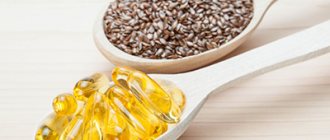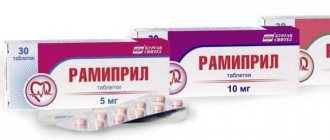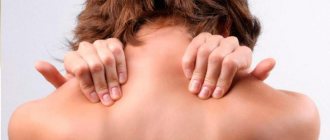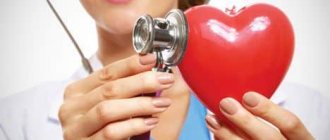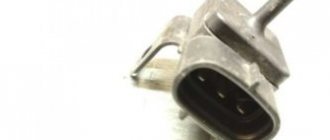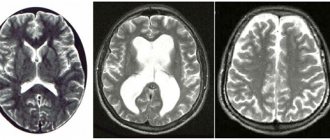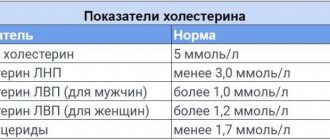Arterial hypertension affects more than 50% of the world's population. The risk of changes in the functioning of blood vessels and the heart increases with age. If in children and young people the indicators are almost always normal or slightly below average, then in men and women after 50 years of age, people with stable 120/80 are rarely found. In most cases, blood pressure levels tend to rise. This is facilitated by a decrease in the elasticity of the vascular walls, accumulated chronic disorders, changes in hormonal status and other factors.
Why is it necessary to reduce blood pressure?
Lowering blood pressure is a necessary part of the treatment of hypertension, which has various origins. This must be done not only to improve well-being, but also to eliminate dangerous conditions:
- crisis;
- arrhythmias;
- hypoxia;
- disturbances in the blood supply to the tissues of internal organs and the brain.
If you ignore high blood pressure readings, the risk of strokes, heart attacks, progression of angina and heart attacks increases. Everyone whose indicators are outside the normal range has to resort to drugs that normalize blood pressure:
- 120–140 mm/Hg: systolic (upper);
- 80–89 mm: diastolic (lower).
Blood pressure close to the lower limits is considered ideal. A tendency to periodically increase values may be the first sign of pathology. Factors provoking the development of the disease:
- stress;
- chronic systemic diseases;
- unfavorable heredity;
- congenital heart and vascular defects;
- disorders of the kidneys;
- unhealthy diet;
- smoking;
- obesity;
- disturbance of carbohydrate or lipid metabolism.
People with incipient or established hypertension often think that they have no health problems. High blood pressure may not show itself at first. As the pathology progresses, it causes sharp throbbing headaches. During an increase in pressure, vision impairment, tinnitus, nausea, and general weakness may occur. Without drug correction, it is not far from a serious attack and irreversible consequences.
Lisinopril is a safe drug
Lisinopril belongs to the category of ACE inhibitors. However, it also contains a substance belonging to the group of diuretics. This drug is often prescribed to elderly patients who suffer from hypertension. It is approved for use in diabetics, since the composition of the drug does not affect blood glucose levels in any way.
The effect of a single dose of the tablet is noted by the patient after an hour, and its effect persists throughout the day. The main functions of Lisinopril include:
- increasing the ability of the heart to withstand loads in conditions of acquired failure;
- reducing the risk of developing pathologies of the heart muscle;
- maintaining pressure within normal limits;
- assistance in stabilizing the condition of patients with diabetes.
The main side effects are non-dangerous conditions:
- feeling of dry mouth;
- rare cough;
- increased sweating;
- slight dizziness.
If dizziness or cough interferes with normal functioning, you should inform your doctor about this so that the drug can be changed.
How to use high blood pressure medications
People suffering from hypertension should not buy medications that normalize blood pressure on the advice of friends, pharmacists, or by their own choice. Medicines in this category are selected strictly individually. This is done by the attending physician based on the results of the examination. The type of tablets, their dosage, frequency of administration, and course duration are also determined separately for each patient. The age, stage of hypertension, the causes that caused it, and concomitant diseases are taken into account.
In most cases, patients require medication correction constantly. The doctor may prescribe one or more drugs with different principles of action. Over time, it may be necessary to increase the dosage of tablets. And as your physical condition improves, the amount of medication is reduced.
There are 6 groups of medications to normalize high blood pressure. They all have different mechanisms of action and are available by prescription.
Classification of antihypertensive drugs
Medicines for hypertension, depending on the mechanism of their effect on the human body, are divided into the following groups:
- Agents acting on the renin-angiotensin system.
- Calcium channel blockers.
- Alpha adrenergic blockers.
- Beta blockers.
- Diuretics.
- Neurotropic drugs of central action.
- Medicines that affect the central nervous system.
Doctors often prescribe several blood pressure-lowering drugs to a patient at once, and there is a rational grain in this - combination therapy for many patients will have a more effective effect than taking one drug.
Below we will describe the principle of operation of drugs representing each of the above pharmacological groups.
Calcium antagonists
By blocking the penetration of calcium ions into cells, these drugs cause a reflex relaxation of the muscle walls of blood vessels, reducing their tone. As a result of the expansion of the lumen of the arteries, the blood pressure decreases. Side effects of such drugs include: tachycardia, heart rhythm disturbances, dizziness. Popular tablets of this group:
- Dialtiazem;
- Verapamil;
- Norvasc.
The drugs effectively reduce blood pressure in various forms of hypertension, but do not combine well with other groups of antihypertensive drugs and have many contraindications.
Clinical indications for taking rapid-acting drugs
“First aid” tablets or medicines with instant action should be used in extreme cases, for example, with a rapid increase in blood pressure or an attack of hypertension, when previously used therapeutic actions have proven ineffective.
This rule is due to the fact that such medications contain an increased concentration of active substances, so there is a high probability of an unpredictable reaction of the body due to side effects.
In addition, these drugs are not first-line medications in the treatment of hypertension, as they have a rapid but short-lived effect.
- ACE inhibitors - list of drugs. Mechanism of action of new generation ACE inhibitors and contraindications
So in what cases can you take pills to quickly lower blood pressure? Experts name a number of conditions when taking these drugs is advisable:
- The frequency between sudden surges in blood pressure is less than 30-60 minutes.
- The blood pressure level in patients over 60 years of age exceeds 150/90 units.
- There is severe dizziness.
- There is an increase in heart rate.
- Manifestation of cramps in the calf muscles.
- Nausea and vomiting are present.
- Blurred consciousness and black spots before the eyes.
- Recently suffered from a hypertensive crisis.
- The doctor prescribed taking this medicine in case of a significant increase in blood pressure.
When eliminating an acute pathological situation with fast-acting medications at home, doctors advise:
- The pressure should not be reduced quickly, but gradually, in several stages, that is, at first by no more than 25%.
- Then, over the course of 2-6 hours, reduce to 160/100, measuring blood pressure every 30 minutes, monitoring the upper and lower arterial levels.
- If the pressure rises again to 180/110, take a second dose of the medicine (the interval between the previous dosage should not be less than 30 minutes).
- Maintain the minimum effective dosage, which will help avoid overdose and a sharp drop in blood pressure and pulse rate, as well as the manifestation of hypotension, which is dangerous for the development of ischemia and other serious consequences.
ACE inhibitors (angiotensin-converting enzyme)
Drugs that reduce the production of the enzyme that produces angiotensin, a hormone that provokes vascular spasms and a subsequent increase in blood pressure. They act quite gently, improve the outflow of excess fluid from the body, eliminating swelling. But they often provoke coughing attacks - this is their characteristic side effect. Common drugs:
- Zokardis;
- Captopril;
- Criminals
All products are available in the form of tablets of various dosages.
Reducing blood pressure without the use of medications
First of all, you need to remember that the first attack of a pressure surge is a reason to purchase a home blood pressure monitor. If signs of hypertension appear, and there are no drugs that can normalize the condition, to relieve the symptoms you need to do the following:
- Provide rest to the body by taking a semi-sitting position.
- Get rid of tight and suffocating clothes (unbutton your shirt, take off your scarf).
- Move closer to a source of fresh air - open a window/turn on the air conditioner.
- Disturb the patient as little as possible with worries and exclamations about his terrible appearance caused by an attack of hypertension.
- Drink green tea or a hibiscus drink made from hibiscus flowers.
- Avoid eating salty foods, as salt, by retaining water in the body, leads to edema and increased blood pressure.
- If after 15 minutes it does not get better, call an ambulance.
You can help relieve the condition by applying wet, cold towels to your forehead.
How to lower heart pressure
There are a huge number of medications that help lower heart pressure, and almost all of them are available without a prescription. It is important to remember that their uncontrolled use can lower blood pressure before hospitalization and long-term treatment. If you have high blood pressure, you must strictly follow the doctor's prescription and take only those medications that have been prescribed. Even analogs or generics can have different effects on the same patient, so you need to know what to take specifically for you.
Pills
List of the most common modern tablets for high DD:
- Verapamil;
- Atenolol;
- Ramipril;
- Enalapril;
- Veroshpiron (fast-acting sublingual tablets for high blood pressure);
- Indap;
- Hypothiazide;
- Triampur.
Heart medications
Drug therapy makes sense if the persistently elevated DD is more than 90 mmHg. Art. To relieve high blood pressure, a complex of drugs is used. Their extended combination is selected exclusively for a specific patient. With the same degree of hypertension, its causes can be very different, and this implies how to use medications for a particular patient.
List of cardiac drugs:
- thiazides – Hypothiazide, Hydrochlorothiazide, Cyclomethiazide;
- sulfonamides – Oxolodin, Indapamide, Oxodoline;
- beta blockers – selected completely individually;
- Carvedilol is one of the most effective non-selective adrenergic blockers as part of such drugs as Cardivil, Atram, Talliton, Cariol, Bagodilol, Vedicarol, Recardium.
Emergency medications
Elderly hypertensive patients need to have in their medicine cabinet products that can provide a rapid hypotensive effect. This:
- Clonidine. A decrease in blood pressure occurs 30 minutes after taking the tablet. Duration of action – 8 hours. Recommended for use in hypertensive crisis.
- Nifedepine. It starts to work very quickly. The tablet must be placed under the tongue.
- Nitroglycerine. The tablet should be placed under the tongue when pain occurs in the heart area.
- Capoten/Captopril. They reduce blood pressure quite quickly. Intended for sublingual use.
- Adelfan. It doesn’t work immediately, but it also works quite quickly.
- Moxonidine. A gradual decrease in blood pressure begins half an hour after taking the dose.
- Propronalol. A decrease in blood pressure occurs 30 minutes after taking the drug. The recommended dosage is 50 mg. The pressure remains stable over the next six hours.
- Furosemide. Has a powerful diuretic effect.
Emergency medications can be taken at any stage of hypertension.
Beta blockers
The effect of taking beta-blockers is based on a decrease in the activity of beta-adrenergic receptors located in myocardial tissue.
Beta-blockers can be used both as a single drug and as part of combination therapy
List of drugs used:
- Tenoric. It is used in the treatment of pathology both as an independent remedy and as part of a complex treatment. Has a cumulative effect. The maximum effect is observed two to four hours after taking the tablet.
- Metoprolol. Used for arrhythmias. It has a prolonged effect, so you need to take the tablet once a day at the same time. There is no withdrawal syndrome.
- Betaxalol. Reduces blood pressure, prevents the development of hypertensive crisis against the background of psycho-emotional and physical stress. Does not interfere with glucose metabolism. At the very beginning of treatment, weakness and slight numbness of the limbs may appear. The condition goes away on its own within a few days.
Treatment of headaches with low blood pressure
Headache with low blood pressure is typical for hypotensive people - people who experience a chronic decrease in blood pressure. This condition can be caused by overeating, alcohol, stress, and changes in weather conditions. A typical clinical picture of this condition is the appearance of dull, throbbing pains that are pressing and paroxysmal in nature.
Vascular headaches are often caused by:
- decreased venous tone, manifested by bursting pain in the back of the head;
- decreased tone of the cerebral arteries, which is characterized by aching pain in the temples, crown of the head and lasting for a long time.
In hypotensive patients, headaches often develop as a result of reasons such as:
- physical fatigue;
- daytime sleep;
- intellectual overstrain;
- first trimester of pregnancy;
- starvation;
- stay in transport;
- being indoors.
Sometimes cephalalgia becomes a precursor to a migraine attack in hypotensive patients. Shortly before the attack, the patient becomes nervous and irritable, after which an attack of pain begins in the forehead and temples, it is pulsating and very intense. Treatment of headaches and pressure should begin as early as possible, since the result depends on this. In this case the following is used:
- Baralgin;
- Vitamins (B12, C);
- Antispasmodics;
- Citramon;
- Paracetamol;
- Tincture of ginseng or eleutherococcus;
- Caffeine.
Please note: It is impossible to treat headaches during pregnancy and lactation without consulting a doctor, since many drugs are prohibited during this period.
Reasons for the increase
Heart pressure increases for various reasons, including:
- Myocardial diseases. High lower pressure may be associated with a deterioration in the contractile function of the left ventricle, which occurs in diseases such as heart attack, myocarditis, and myocardiosclerosis. If the venous outflow of blood to the heart is disrupted, this negatively affects the functioning of the heart muscle. As a result, only cardiac pressure increases, while systolic pressure remains normal, since the ejection of blood from the heart does not change.
- Thyroid diseases.
- Kidney pathologies are often accompanied by an increase in lower pressure. This is due to the fact that in case of kidney diseases, the blood flow in them decreases, and this leads to increased release of a bioactive substance (renin), which increases the tone of peripheral vessels. Thus, the resistance of the arterial walls increases, and with it the heart pressure.
- Spinal diseases.
- Obesity.
- Taking certain medications.
